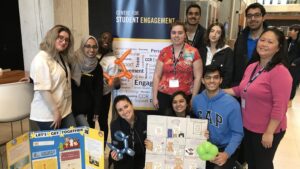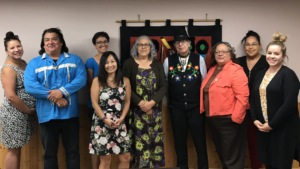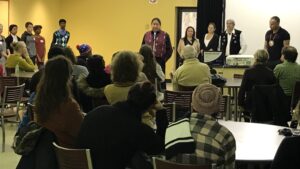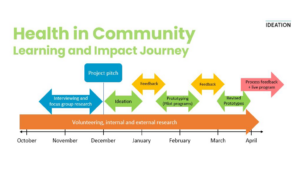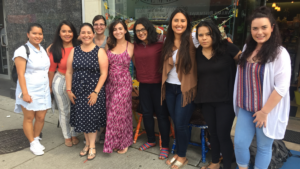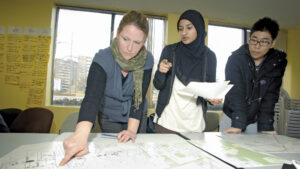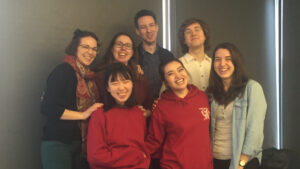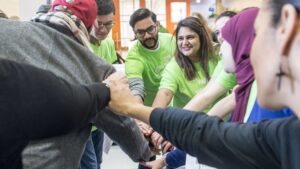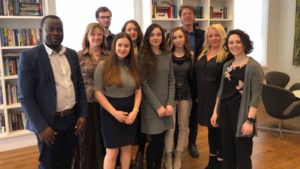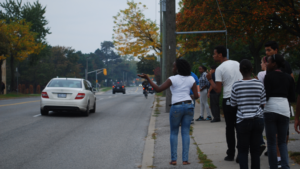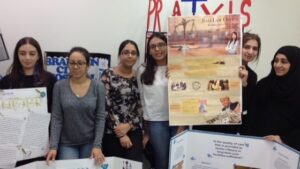WHAT IS IT?
Students participate in a structured learning experience in partnership with communities or grassroots, non-profit or public organizations. These partnerships are driven by community partner priorities and provide reciprocal benefits to those partners and the students engaged with them. In this type of experience, students undertake reflection to connect their community engagement to the learning outcomes of the course/program, which can be curricular or co-curricular in nature.
IMPORTANT CONSIDERATIONS
Eligibility:
- Eligibility criteria will vary depending on the initiative in which you are interested in participating.
Duration:
- Curricular community-engaged learning opportunities may involve part-time hours with a community organization and can last from a few hours to a number of days or weeks over the course of an academic term. The timelines vary and will be set within the course.
- Co-curricular community-engaged learning opportunities may be one-time experiences or longer-term placements with a flexible duration.
Recognition and / or compensation:
- You will receive course credit for participating in curricular community-engaged learning opportunities.
- Most co-curricular community-engaged learning opportunities are unpaid and many will offer recognition through the co-curricular record (CCR).
Accessibility:
- Inclusion in EL is achieved when an experience supports learning for all students. In keeping with the Ontario Human Rights Code, the University of Toronto has a commitment to an equitable learning environment for people with disabilities. It is important to engage in an interactive process to determine the optimal and most appropriate accommodations for individual students engaged in experiential learning.
- If a student requires an accommodation related to an community-engaged learning opportunity, you may wish to connect with one of the accessibility services offices at the University of Toronto. Staff at these offices will advise you on the disclosure of accommodation requirements as well as support you through the process of determining and negotiating effective accommodations for the student’s individual circumstances.
- Student support offices strive to create a safe and comfortable community where students have opportunities to discuss navigating barriers, find peer support and learn about various academic and social opportunities.
ADDITIONAL INFORMATION
- Review the Guidelines & Procedures page to further understand which partnership agreements, insurance and liability coverage and health and safety policies are applicable to community engaged learning experiences. The Experiential Learning Risk Management Matrix provides a one-page overview.
- Curricular Community-Engaged Learning:
- An unpaid student placement agreement between the University of Toronto and the partner organization needs to be in place. This agreement will clearly outline items such as responsibilities, provisions and policies to be followed for both the University and the partner organization.
- Students engaging in a curricular community-engaged learning experience (for credit for an unpaid placement), receive workplace insurance coverage through the University or Ministry of Colleges and Universities.
- Students engaging in a curricular community-engaged learning experience (for credit for an unpaid placement) have general liability coverage through the University.
- Co-Curricular Community-Engaged Learning:
- A student placement agreement is not required for a co-curricular community-engaged learning experience (not for course credit).
- Students engaging in a co-curricular community engaged learning experience (not for course credit) do not receive workplace insurance coverage through the University or Ministry of Colleges and Universities.
- For information about liability coverage for co-curricular community-engaged learning experiences, this depends on the circumstances of the experience, instructors or program. Coordinators should contact the Risk Management and Insurance Department.
BENEFITS
- Community-engaged learning experiences allow students to integrate the theoretical and the practical by using their disciplinary skills and knowledge in an applied setting.
- Community-engaged learning encourages students to consider the public role of their discipline as well as how their field can learn from, and contribute to, the work of communities and community organizations.
- In community-engaged learning opportunities, students learn new knowledge and skills while also offering fresh insight to community organizations through a context of partnership and reciprocity.
- Community-engaged learning provides students with opportunities for development in a range of areas including personal, career and civic development.
- In community-engaged learning, students consider their projects and placements through a disciplinary lens which supports them in understanding the applicability of their degree.
- Community-engaged learning allows students to work in solidarity with others to transform systems of oppression and develop a deeper understanding of the complexity of structural social issues.


